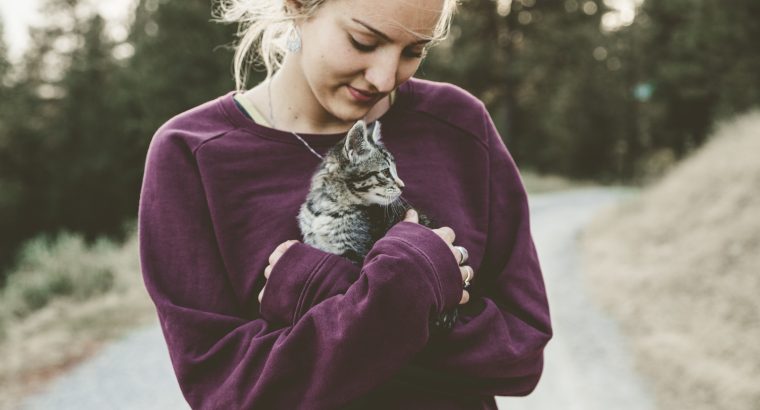Comprehensive Handbook for Cat Owners
Cats have been domesticated for thousands of years and are one of the most popular pets in the world. These feline friends are known for their independence, playfulness, and affectionate nature. But, like all pets, they require care and attention to stay healthy and happy.
This comprehensive guide covers all aspects of cat care, from basic needs such as feeding and grooming to health concerns and behavior management, providing practical tips and advice for both new and experienced cat owners.
Join our PetsForHomes community
With over a million visitors every year, we are committed to finding every pet it's perfect forever family nationwide.
Feeding
Feeding your cat a balanced and nutritious diet is essential for their health and well-being. As obligate carnivores, cats require a diet that is high in animal protein. In the wild, cats hunt small prey such as mice and birds, which provides them with the protein and nutrients they need. Domestic cats can also thrive on a diet that replicates this natural diet.
Dr. Gary Richter, a veterinarian and author of “The Ultimate Pet Health Guide,” recommends that cat food should contain at least 30% protein, 9% fat, and minimal carbohydrates. He also advises cat owners to look for cat food that meets the Association of American Feed Control Officials (AAFCO) nutritional standards. It is important to avoid cat food that contains artificial preservatives and by-products.
When it comes to feeding your cat, there are several options available. You can choose to feed your cat wet or dry food, or a combination of both. Wet food provides hydration, which is essential for your cat’s health, while dry food can help keep your cat’s teeth clean. Free-feeding, or leaving food out for your cat to eat at their leisure, is not recommended, as it can lead to overeating and obesity.
It is important to note that feeding your cat table scraps is not recommended. Human food can upset their digestive system and cause health issues such as obesity and pancreatitis.
Water is also essential for your cat’s health. Provide them with fresh water daily and make sure that their water bowl is cleaned regularly.
Grooming
Grooming your cat is important for their hygiene and health. Cats are naturally clean animals, but they still require grooming to prevent matting and hairballs. Regular grooming also helps you to bond with your cat and monitor their health.
According to Dr. Rachel Barrack, a veterinarian and founder of Animal Acupuncture, regular grooming can help identify any skin issues, parasites, or other problems before they become serious. Brushing your cat’s fur daily will help keep it healthy and prevent hairballs.
Nail trimming is also an important part of grooming your cat. Trim your cat’s nails every two to three weeks to prevent them from becoming too long and causing discomfort. If you are unsure about how to trim your cat’s nails, consult with your veterinarian.
In addition to grooming, dental care is also important for your cat’s overall health. According to the American Veterinary Dental Society, up to 70% of cats show signs of dental disease by the age of three. Regular dental check-ups and teeth cleanings can help prevent dental problems and keep your cat’s teeth healthy.
Health Concerns
As a cat parent, it is important to be aware of common health concerns that can affect your cat’s well-being. One of the most important aspects of cat health is vaccination. Kittens should receive a series of vaccinations to protect them from diseases such as feline herpesvirus, calicivirus, and panleukopenia.
Spaying or neutering your cat is also important for their health. According to the American Veterinary Medical Association (AVMA), spaying or neutering your cat can prevent health problems such as uterine infections and testicular cancer.
Other common health concerns in cats include obesity, urinary tract infections, and diabetes. Regular veterinary check-ups can help identify these issues early and prevent them from becoming serious.
Obesity is a common problem in cats, and it can lead to other health problems such as diabetes and joint issues. Feeding your cat a balanced and nutritious diet, and providing them with regular exercise, can help prevent obesity. If you suspect that your cat is overweight, consult with your veterinarian to develop a weight loss plan.
Urinary tract infections (UTIs) are also common in cats, especially in female cats. Symptoms of UTIs include frequent urination, blood in the urine, and urinating outside of the litter box. If you suspect that your cat has a UTI, consult with an online veterinarian, as it can be a serious health issue.
Diabetes is another health concern in cats, and it can be caused by obesity, genetics, or other factors. Symptoms of diabetes in cats include increased thirst, frequent urination, and weight loss. If you suspect that your cat has diabetes, consult with your veterinarian for diagnosis and treatment.
Behavior Management
Cats are known for their independent nature, but they still require attention and socialization to prevent behavior issues. Providing your cat with toys, scratching posts, and climbing structures can help keep them entertained and prevent destructive behavior.
According to Dr. Katherine Houpt, a veterinary behaviorist and professor at Cornell University, socialization is also important for cats. Introducing your cat to new people and animals at a young age can help prevent behavior problems such as aggression and fearfulness.
It is also important to provide your cat with a comfortable and safe environment. Cats need a space where they can retreat and feel secure, such as a cozy bed or a cat tree. Providing your cat with a designated litter box and keeping it clean can also prevent litter box issues.
While providing your cat with a clean and designated litter box is crucial for their health and happiness, some cats may develop litter box aversion. This can be caused by a variety of factors, including the type of litter being used.
Tofu Cat Litter Australia is a unique cat litter that is made from natural plant pea fibre, and is designed to reduce litter box aversion. This litter contains a patented natural odour breakdown enzyme technology that breaks down odours naturally, without the need for added fragrances or chemicals. This can make it more appealing to cats and reduce the chances of litter box aversion.
In addition, Tofu Cat Litter Australia is eco-friendly and biodegradable, making it a great choice for environmentally-conscious cat owners. Its dust-free composition also means that it is less likely to cause respiratory issues in cats, which can be a concern with some traditional clay litters.
When it comes to managing your cat’s behaviour, choosing the right litter can make a big difference. Tofu Cat Litter Australia is a great option for reducing litter box aversion and keeping your cat happy and healthy.
Conclusion
Cats are beloved pets for good reason. They are playful, affectionate, and bring joy to our lives. But, like all pets, they require care and attention to stay healthy and happy. Feeding your cat a balanced and nutritious diet, grooming them regularly, and providing them with regular veterinary care can help prevent health issues. Providing your cat with toys, scratching posts, and socialization can prevent behavior issues and help your cat thrive. By following the tips and advice in this guide, you can ensure that your feline friend is healthy, happy, and loved.
You can also learn more about how to find loving homes for kittens you’ve bred on PetsForHomes.
Related posts:






